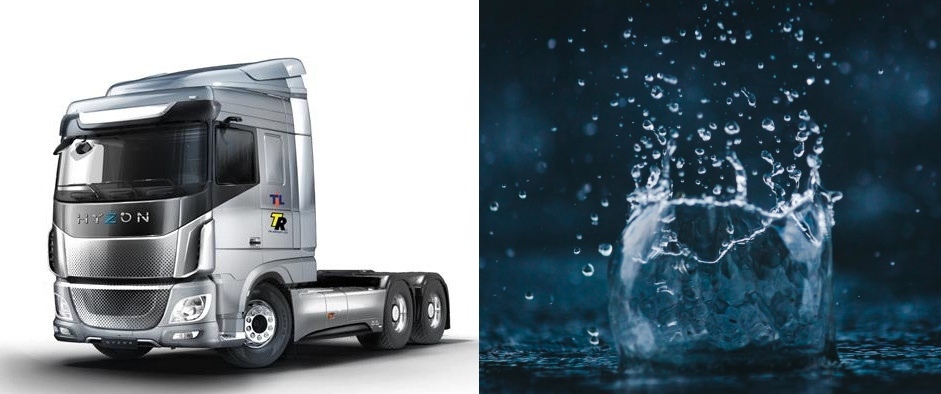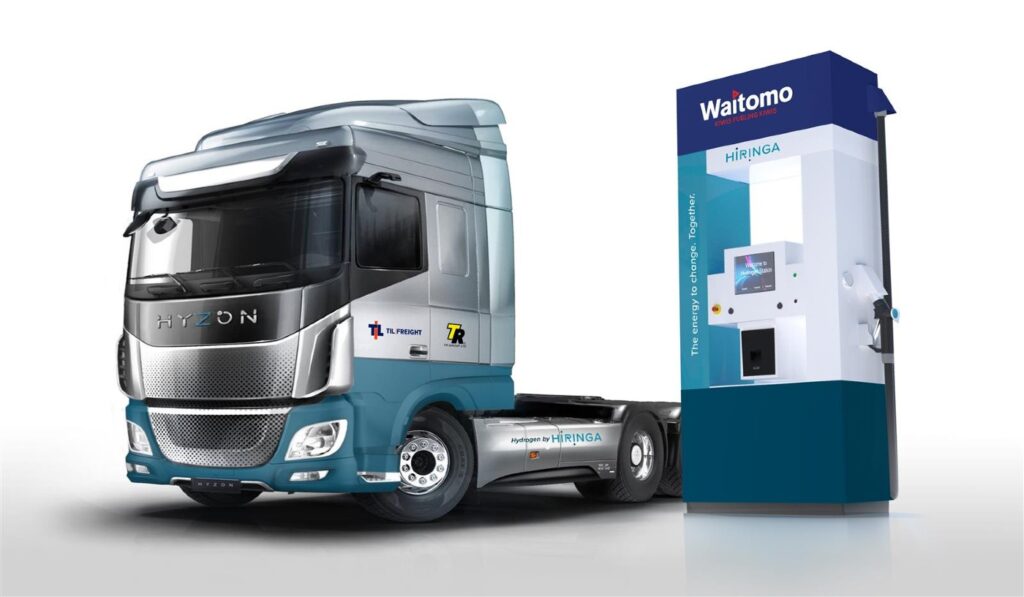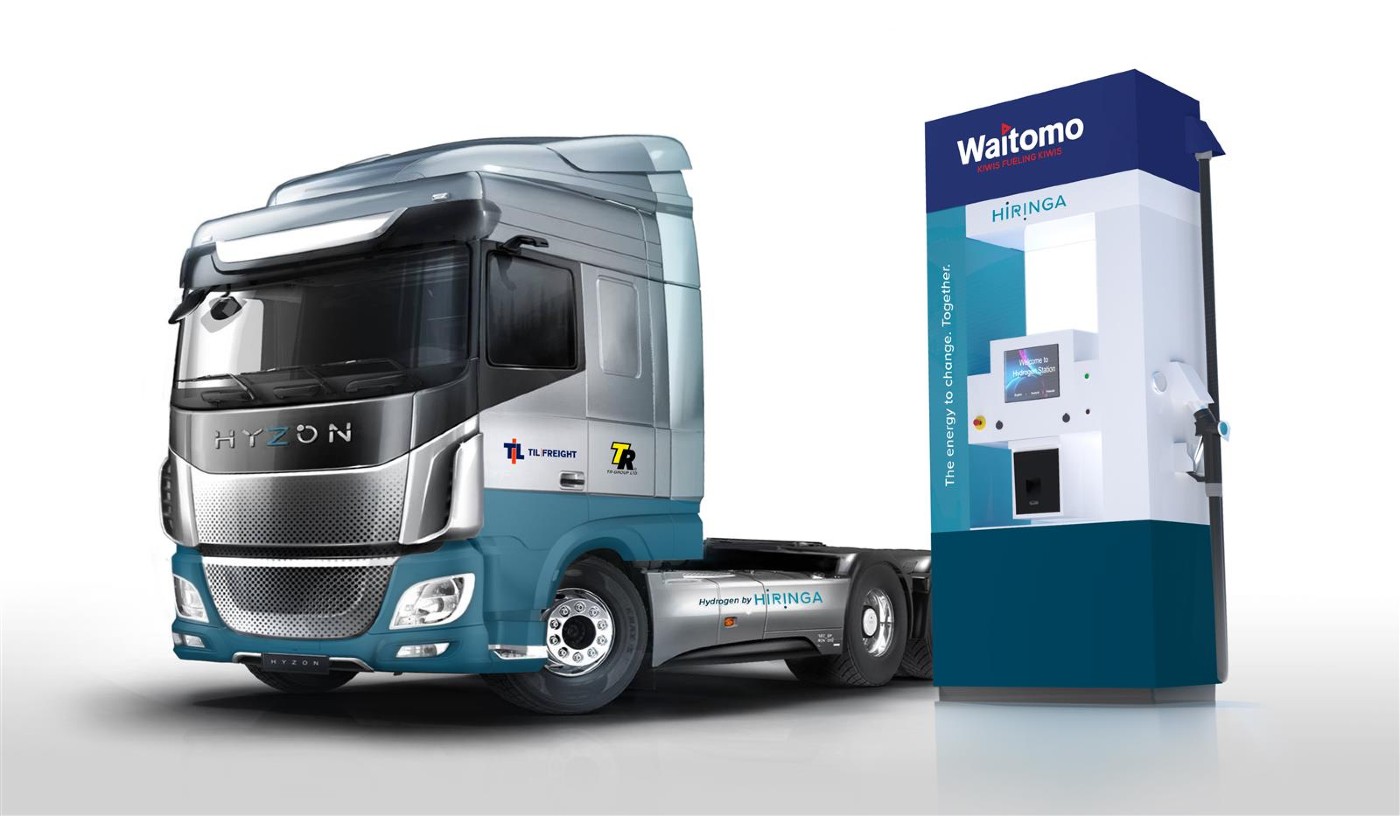The roads of New Zealand will soon be worked over by long-distance trucks powered entirely by ultra-sustainable hydrogen-powered electric fuel cells.

Capable of traveling 310 miles (500 kilometers) on one tank, these special fuel cells use hydrogen stored on board and oxygen from the atmosphere to generate electricity and power the car. Since H + O = H2O, the only emission of any kind coming out of the tailpipe is water.
The news comes as Kiwi company Hiringa and Hyzon Motors—a U.S. manufacturer of hydrogen fuel cells—signed a “heads of agreement” that would allow Hiringa’s hydrogen-powered electric vehicles (HPEVs) to start hauling freight as early as 2022, positioning New Zealand as a world leader in hydrogen vehicle infrastructure.
Between late 2020 and 2026, Hiringa expects to roll out 1,500 different HPEVs varying in size from van-shaped to 18-wheelers to road-train models for the Australian market.
The company also expects to outfit the North and South Islands of the Pacific nation with the world’s most sophisticated hydrogen refueling network, slated to come online in 2021.
RELATED: This Volkswagen-Backed Startup is Building a Revolutionary Battery for Electric Cars
HPEVs have been around for years, but are often overlooked as a font of carbon reduction assets in the transportation sector in favor of battery-powered electric vehicles. However, unlike the latter, they don’t require massive increases in battery technology to become viable. Instead they suffer, like battery EVs, from a lack of refueling stations.
Zero-emissions supply chain

Working with regional, national, and native Māori governments, Hiringa is poised to service 82% of trucking routes on the South Island, and 100% on the North Island, with a true zero-emissions supply chain.
MORE: World’s Largest All-Electric Airplane Takes Historic First Flight Towards Cleaner Aviation Industry
Currently around 60% of New Zealand’s power needs are met with fossil fuels, but the island is a wonderland of geological, hydrological, and meteorological forces. Hiringa—who take their name from a Māori word meaning perseverance, adaptability, and vitality—feel that number is far too high.
“New Zealand is set to be one of the first countries in the world to be able to offer a zero-emission national supply chain,” said Hiringa CEO Andrew Clennett in a statement. “To be developing this fully integrated solution in New Zealand is an excellent example of the joint leadership being shown by the transport and hydrogen industries in this country.”
“The Hiringa hydrogen infrastructure deployment will position New Zealand to become a global leader in the adoption of zero-emission heavy vehicle technology, and we are pleased to be playing a major part in this transition,’’ said Craig Knight, co-founder of Hyzon Motors, in a release.
New York’s Hyzon Motors have forged their own path through the HPEV market, and along with working with Hiringa, have this year signed an agreement to provide Australian ore miners Fortescue Metals Group, the world’s fourth largest exporter of iron, with a fleet of HPEVs for operations in Western Australia that will save 400-450 million liters of diesel a year.
Power Up With Positivity By Sharing The Good News With Your Friends On Social Media…




















